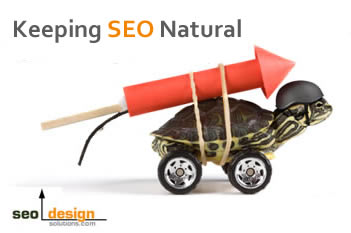Search engine results and their respective positions rarely stand still. In fact, we know from SEO that search results constantly vary, fluctuate, rise and fall, like the tide endlessly churning to find the page for each phrase with the least common denominator and highest relevance threshold for each keyword.

SEO and the Rise and Fall of Rankings
If your page has crossed the tipping point / threshold, then authority is the reward (which implies less volatility from less perfect metrics).
This ebb and flow are part of an algorithmic process whereby a pages strength and worth in the index is constantly measured, reassessed and recalculated for relevance based on (a) the volume of content (b) the quality of the content (c) the support of the website the content is located at and (d) the off page popularity and trust a page has for a specific range of keywords.
Creating search engine rankings is a systemic process which can be consistently reproduced once the tipping point has been determined, reached and exceeded for a given term.
This means that under the right circumstances and conditions, with the right amount of content, the right amount of links and the appropriate amount of discovery and fusion of the combined metrics, that any keyword or key phrase is organically attainable.
Wikipedia is a prime of example, a website so robust and authoritative, it ranks for more keywords on accident than the crux of the web on purpose.
The key is to know how to create those conditions or circumstances and that depends on the expertise and approach of the individual SEO practitioner, in house-team or SEO firm executing the collective array of tactics such as web development, content creation and related SEO techniques, which in turn create the algorithmic reactions from search engines.
Creating the ideal conditions might require:
- Clearly delineated site architecture to consolidate on page factors.
- Hundreds or thousands of new pages targeting the root phrase and/or various keyword modifiers.
- A selective format of syndication to reinforce each page with sufficient deep links.
- Constant pruning through revisions or 301 redirects to consolidate on page ranking factors.
- The use of analytics to determine which keyword variations have stemmed or yield traffic.
- A broader array of citations and methods (which means your SEO must evolve).
Relevance and relevance score are calculated by probabilistic weights such as peer review and citations from other websites in search engines. Particular emphasis is also similarly hinged upon on page relevance for the terms implied.
Just like you wouldn’t have to out run a hungry bear if he stumbled in on a group of people, you would just have to outrun a person slower than you. Relevance score operates on the same premise in search engines.
Through mastering the components of optimization holistically, it is possible to create islands of relevance both within a site and escalate the off page popularity and authoritativeness it has in relationship to the other pages in the index that are targeting the same concepts, keywords and/or search positions.
Each keyword rises and falls based on a variety of metrics; hence, every competitive keyword must run the gauntlet and emerge triumphant when called into action from a query. This means, the more groomed they are over time, the higher the relevance thresholds when the proper culmination occurs and buoyancy in search engines is the default trajectory.
You essentially have to break a ranking loose from complacence by constantly fortifying and nurturing the trunk, the semantic irrigation system then reinforce that with (a) internal links (b) deep links to critical branches or (c) bake the SEO into the template where all of the ingredients can simmer over time and evolve with potency.
In closing, here is the suggested reading list covering each topic in depth that can provide the right mindset and collective use of tactics to apply to your own unique situation.
Search engine algorithms and their weighting methods are bound to change; yet, this does not preclude you from mastering them as they do. In which case, you will need an array of tactics to constantly stay ahead of the latest shifts in the algorithm by basing your optimization tactic on firm and proven principles known for their effectiveness in the present and the past.
Titles:
- Optimizing Titles, Descriptions and Tags
- The Power of SEO Friendly Titles
- Optimizing Titles Anchor Text and Links
Links:
- [SEO VIDEO] – Building Internal Link Volume
- SEO and Internal Linking
- Removing Broken Links and Errors
Site Architecture:
- Site Architecture, Sub Domains and Sitemaps
- Internal and External Link Architecture
- Increasing Relevance with Naming Conventions
- SEO for Large Websites [Part III]











I think it is important to really keep going with SEO even when you have achieved the rankings you want. A website needs to build power and strength to over time to maintain it’s position.
each web site has it’s own ranking.we should try to make sites which help users well.
@Nick:
Agreed, you never really should stop optimizing, just find other more accessible terms to promote stemming, while pursuing another relevant trophy phrase.
Let’s face it, market share and competition are real. If you stop, then you could be the next website to fall off the page for relevance when the spiders and index beckon the call.
There are always people trying just as hard or not harder to take away any given keyword / position. The only advantage is padding yourself with more trust, citation or authority than they have.
I agree 100% with Nick@Brick Marketing – one has to build site strength and authority all the time in order to keep that coveted authority status.
But I have also seen, in less competitive fields – the threshold that the post is about is also true as I have seen sites rank continuously for months without any new campaigns.
Depends on the keywords, the sites authority vs the competitors, the trust rank of each and the link cycles, hard to tell which ones are passing more value from the outside. Sometimes we struggle for months to acquire a ranking, then poof it jumps to the top and stays without any further effort. You never know when this will happen or what the criteria are to cross that tipping point, but, it is fascinating nonetheless.
I noticed most old domain site and not yet optimized has a high PR but less backlinks.Checking also the competitor site may help you to improve your rankings